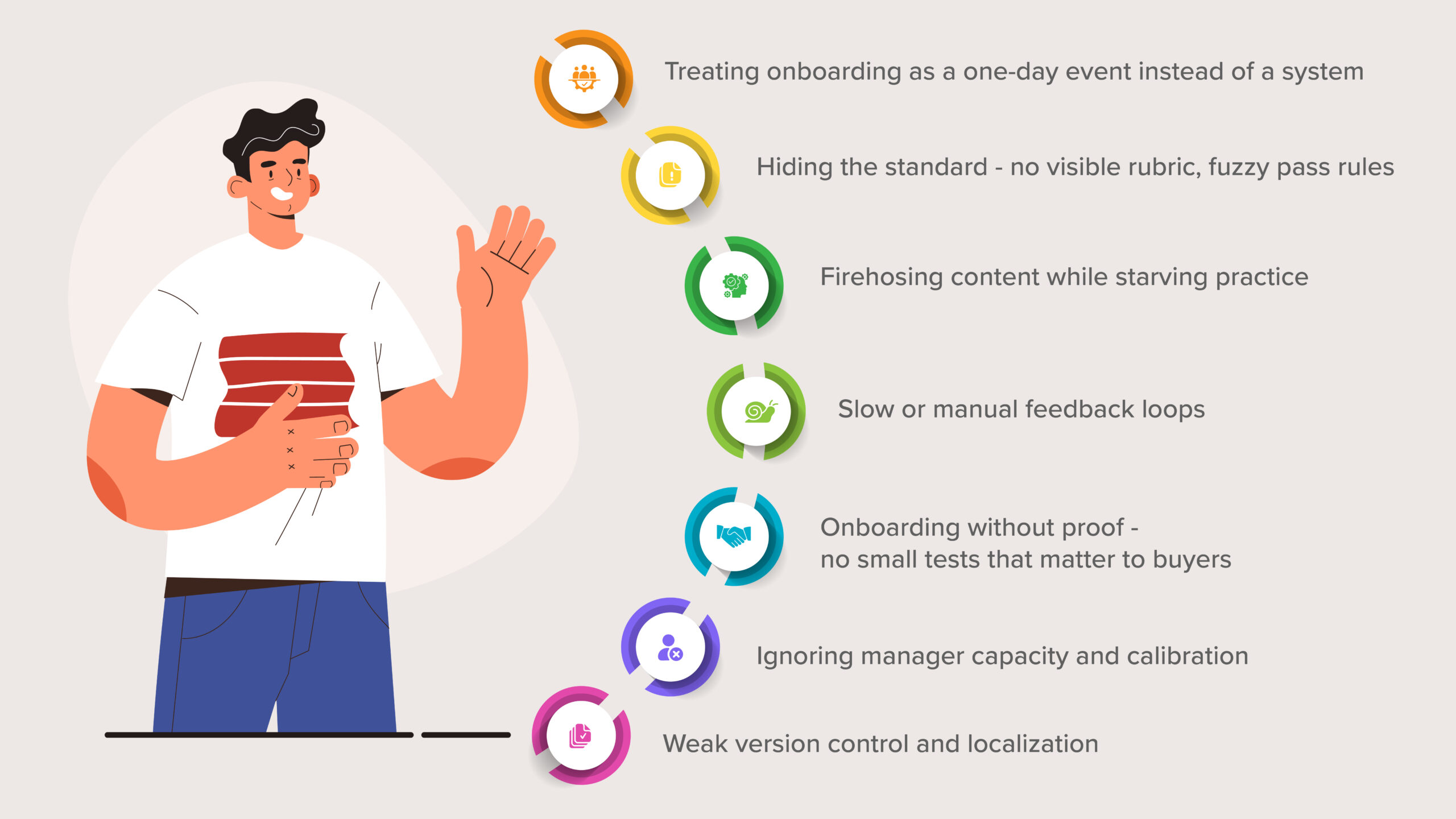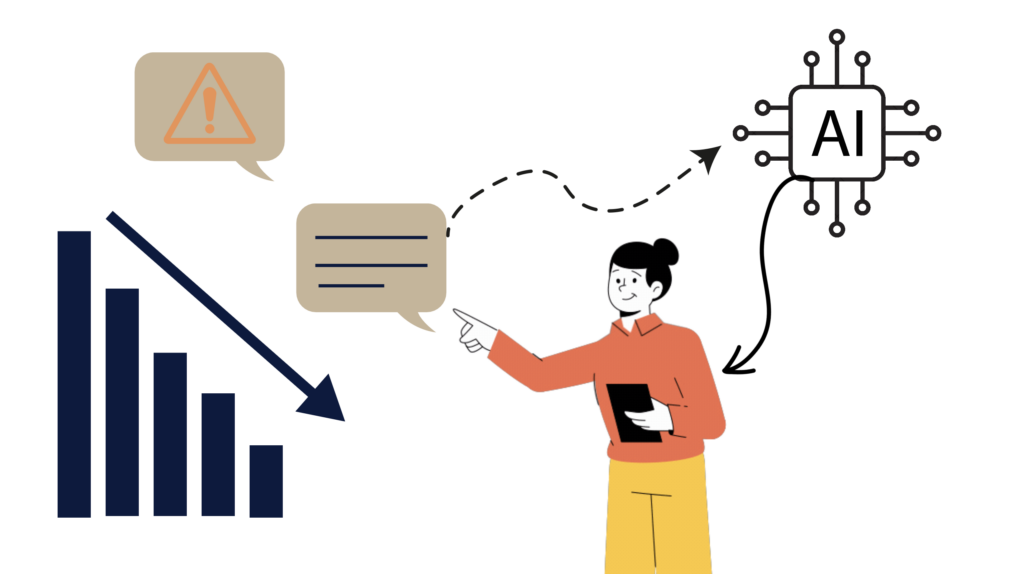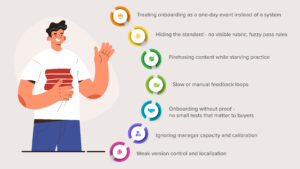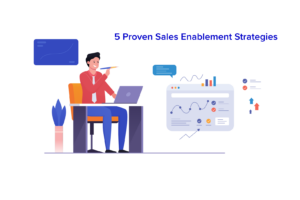Table of Contents
The Hidden Cost of Misaligned Sales Messaging
When revenue starts to decline, leaders usually examine products, pricing and market conditions. Yet for many enterprises, the real clause is not a flawed product or weak demand. The truth lies in the most critical but neglected area, how efficiently sales representatives communicate the product’s value to the customer.
Picture yourself in a global life sciences company with sales reps spread across United States and overseas. The company has invested in modern CMS, a solid LMS supported by strong product portfolio. Now, quarter after quarter, leaders notice a recurring trend. Customers receive different value propositions by region such as product claims shifting from team to team, causing trust to gradually weaken and credibility slipping away.
The problem isn’t the content itself. It’s the lack of consistency in how that content is delivered. Unless every rep, in every region, communicates a clear, confident, and compliant message, organizations risk losing both revenue and customer confidence.
Read along, as we explore in this blog why sales messaging often breaks down in distributed organizations, the risks it creates and how AI-powered roleplays are solving this by aligning all teams in unified platform.
Where Sales Messaging Breaks Down:
Even the best sales enablement strategies fall short when scaled across regions. Here are three of the common reason they break out:
1. Over Reliance on Content Delivery
Legacy LMS and CRM systems do a fine job of distributing playbooks, scripts and presentations. But sending the content to reps is not the same as building capability. Reps may skim the material, pass the knowledge quiz and still improvize in front of the customers. Under pressure, they fall back on personal interpretations instead of delivering company-approved messaging.
2. Regional Drift
Legacy LMS and CRM systems do a fine job of distributing playbooks, scripts and presentations. But sending the content to reps is not same as building capability. Reps may skim the material, pass the knowledge quiz and still improvize in front of the customers. Under pressure, they fall back on personal interpretations instead of delivering company-approved messaging.
3. Lack of Reinforcement
Occasional workshops may create a sense of alignment among the reps, but it rarely lasts. Without continuous reinforcement, reps quickly forget and fall back to the old habits or copy their peers under the pressure to stay relevant. Thus, causing messaging fragments and customers receive inconsistent experiences.
The outcome is the same across all three issues: longer sales cycles, missed opportunities and reputational risk as executives realize their company is delivering conflicting messages across markets.
The Future of Messaging Consistency: AI-powered Roleplay
Leading enterprises have started to see that consistent sales messaging cannot be maintained through static slides of content or annual training sessions. It takes ongoing practice, active reinforcement and personalized feedback at scale.
That is what AI-powered roleplay provides. Using customizable AI avatars, regional languages specific to the regions and intelligent simulations that recreate real-world scenarios.
With AI roleplay, field teams can:
→Rehearse critical conversations with AI personas that adapt in real time
→Align to updated messaging within days of change, not months
→Get structured feedback on tone, confidence, compliance and accuracy of messaging
→Provide managers with clear visibility into who is aligned and who needs coaching
What you get isn’t just checklist on paper, but consistent behaviors in reps that show up in every customer interaction in future.
Three Strategic Benefits at Scale:
When deployed in distributed teams of organizations, AI-driven roleplays provide three distinguished benefits such as:
1. Consistency Across Markets
Whether it is New York, Frankfurt or Singapore, reps can practice the same scenarios and deliver the same value preposition. Messaging stays unified even while accommodating local nuances.
For example, A sales rep in New York might use American healthcare terms, while a rep in Frankfurt adjusts phrasing to reflect European regulations.
2. Reinforcement That Lasts
Instead of relying on one-time sessions with trainers, reps can train in frequent yet short bursts. Such regular practice helps keep the messaging fresh and retain knowledge better.
For example, a rep who practices objection handling twice a week is more likely to respond correctly under pressure than a rep who attended single sessions months ago.
3. Actionable Insights for Leaders
Managers no longer need to spend hours on observing or reviewing reps to ensure the alignment. AI dashboards surface gaps in real-time, making it easier who is on-message and who needs targeted coaching.
For example, a rep who practices objection handling twice a week is more likely to respond correctly under pressure than a rep who attended single sessions months ago.
Why Consistent Sales Messaging Matters the Most?
For senior leaders, consistent messaging is more than training objective It’s a revenue-critical capability that directly impacts growth, compliance and efficiency. Three reasons why sales leaders are turning to AI roleplay:
1. Compliance Risk Reduction
In highly regulated industries, even a slight error of words can lead to significant legal and financial risks. Any non-compliant claims not only jeopardize the deal but can damage long-term trust. AI roleplay help mitigate these risks by providing reps real-world scenario and compliant-heavy objection handling before-hand.
2. Revenue Growth
Mckinsey report suggest that organizations maintaining consistent messaging achieve up to 20 percent higher revenue growth. The reason is clear: buyers hear the same value preposition regardless of region, role or channel. AI Roleplay reinforces consistency by transforming messaging into a daily exercise instead of an annual training session. Resulting in equipping teams with the confidence to manage complex objections.
3. Operational Efficiency
Traditional workshops and sessions drain significant time and resources, yet it rarely brings an impact. On contrast, AI roleplay helps enterprises deliver consistent training to global teams at scale whenever messaging evolves. The outcome is streamlined by lowering costs, stronger productivity and messaging consistency across all markets.
Practical Use Cases: AI Roleplay in Action
Scenario 1: New Product Launch
A leading MedTech organization launching a new surgical device found that reps were sending mixed responses during HCP interactions. Some focused-on patient outcomes, while some emphasized on cost savings. Reps practiced using AI personas to simulate real-world interactions with surgeons and procurement with AI roleplay until they were in line with narrative around clinical benefits and ROI. In a matter of weeks, messaging was unified across scattered teams accelerating the launch readiness.
Scenario 2: Compliance Alignment
A U.S.-based financial services firm struggled with inconsistent disclosures during client interactions. With dispersed teams, advisors and reps explained regulatory requirement inconsistently, exposing the company to compliance risk. AI-powered roleplay recreated client meetings with compliance scenarios built-in, giving advisors the chance to practice applying regulations accurately in real-time. Within one quarter, enterprises were able to see an up to 35% drop in compliance escalations and senior leaders had greater trust in the firm’s ability to meet audit standards.
Scenario 3: Manager-led Coaching at Scale
District managers in Insurance industries often lacked in-depth coaching as they had to balance travel with heavy workloads of in-person sessions across regions for dispersed teams. AI-powered roleplay platforms provided access to detailed analytics on how each reps performed allowing managers for targeted coaching and scaling their focus on those reps who struggled with specific areas such as explaining denied claims or clarifying policy exclusions.
Preparing for the Future: Messaging Consistency as Competitive Edge
We are seeing the gap between teams using traditional LMS models and AI enabled teams growing every quarter. For leading organizations with distributed sales teams, this gap often ends with fragmented customer experiences, messaging inconsistency, and lost opportunities.
Leading organizations already have AI roleplay tools in place to drive consistent messaging, speed product launches, and ensure compliance. With pre-constructed scenarios, multi-lingual support, and reporting in real-time with insights alerting leaders where the rep is off message; they help ensure their teams are speaking with one confident, unified voice.
The decision is clear: teams that act today will provide credibility with consistency throughout every conversation. Those that wait could compound the lag with competitors who are realizing the benefits from using AI powered roleplays for readiness.
Most importantly with enterprise sales, every interaction is meaningful. The right message delivered consistently could be the difference in your win / loss ratio.
If you are ready to learn how AI powered roleplay can address this gap for your teams, there is no time like the present!
 Two way AI Role Plays
Two way AI Role Plays Targeted Learning
Targeted Learning Gamification
Gamification Sales Coaching
Sales Coaching Sales Contest
Sales Contest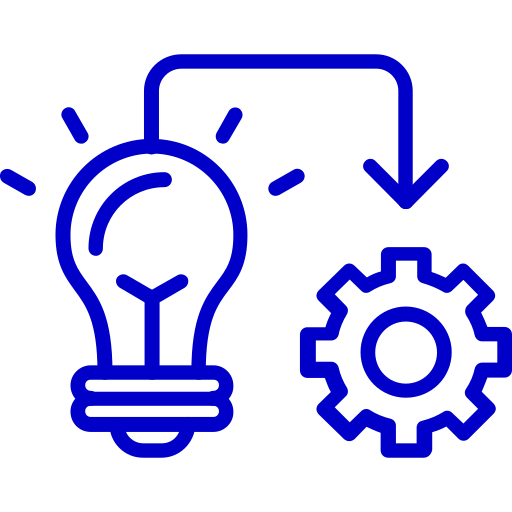 Implementation
Implementation Consulting
Consulting Enterprise Ready
Enterprise Ready Pharmaceuticals
Pharmaceuticals Medical Devices
Medical Devices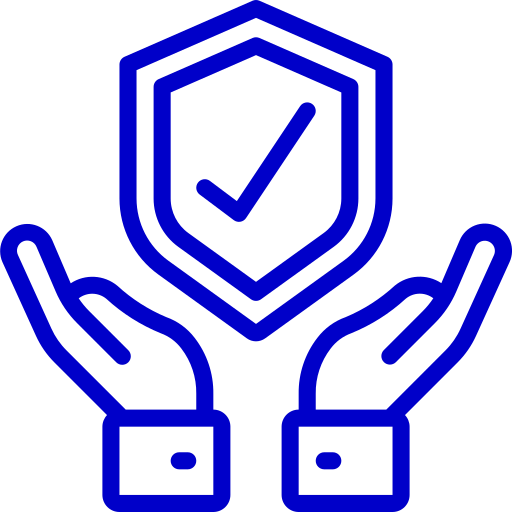 Insurance
Insurance Banking
Banking Technology
Technology Senior Living
Senior Living Sales
Sales Call Centers
Call Centers Marketing
Marketing Improve Sales Productivity
Improve Sales Productivity New Hire Onboarding
New Hire Onboarding New Product Launch
New Product Launch Channel Partner Training
Channel Partner Training Sales Events
Sales Events Success Stories
Success Stories Whitepapers and eBooks
Whitepapers and eBooks Contest Template Designer Tool
Contest Template Designer Tool Sales Training
Sales Training Gamification
Gamification All Blogs
All Blogs
